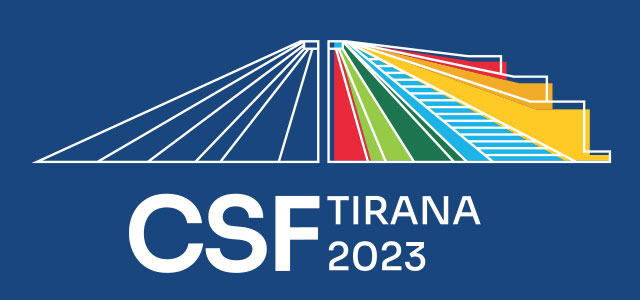More than creating jobs: Reconnecting WB through innovation and entrepreneurship

In 1968, George Land did a study with 1600 five-year olds testing their creativity scores on a test used by NASA to check creativity levels of their scientists. The results were astonishing, with 98% of tested kids scoring in the „highly creative“ range. The same group of kids were tested five and ten years later and only 30% and 12% of them respectively made it into the „highly creative“ category. When 280.000 adults over the age of 25 took the same test only 2% of them were classified as highly creative. The conclusion of the study was clear: non-creative behavior is learned.
Other studies too confirmed this conclusion suggesting that we can stop this process of diminishing creativity by creating conditions that would encourage unorthodox thinking styles and ideas instead of forcibly fitting them into prescribed formats (Shapiro, 2001). The Land-Jarman study was published in 1992 and the world changed multiple times since then. Why are these conclusions relevant for entrepreneurship, perhaps now more than ever? Entrepreneurship is a way of thinking, a problem-solving skill that demands creativity and unorthodox approaches to tackling challenges. There are many takeaways for the entrepreneurial scene in the Western Balkans.
Much of the media portrayal of the Western Balkans focuses on political and economic challenges of the region. More often than not, regional development path is simply conditioned on removing these challenges. But is that really enough to kick start a new wave of smart and inclusive development of the Western Balkan countries? There are other ways of conceiving development in the region, alternative modes of capitalising on our multiple crises and common heritage while waiting for political and economic crises to resolve. In the light of Churchill’s wisdom that urges us not to let a good crisis go to waste, we should flex our creative muscles and start seeing our problems as sources of our future growth and forget about political borders in the process.
Take, for example, horrifying unemployment statistics in the Western Balkans that range from 18% to 35%, well above the EU average of 9%, with youth unemployment in some of the countries being close to 60%. Instead of focusing all resources on tried and tested programmes of state support to employment why not direct some resources on fostering more creative connections among the countries in the region through traditional and social entrepreneurship.
Sure, some will say that this will only work if we embark upon a full-fledged educational reform because our educational system does not prepare youth for risk taking. Granted, that would ease the process but it is lengthy and highly unlikely to happen in the short to medium run. For now, it is important to realise that educational system as we have it today has been constructed to serve the needs of the Industrial revolution, i.e. to create disciplined workers who follow instructions easily. Sometimes simply knowing the limitations of existing resources would spur innovation in bridging the gap from what we have to what we need. Civil society organisations in the region can serve as important source of this innovation. Initiating region-wide partnerships among few already well positioned players in each of the Western Balkan countries can drive the process much farther than what any of these actors could achieve alone within their country’s borders.
Creative and cultural industries of Western Balkan countries are invaluable and untapped source of our collective growth. The EU member states have recognised this potential long ago. European Parliament’s 2016 report on EU policies on creative and cultural industries reminds that this sector hosts around 11.2% of all private enterprises and employs 7.5% of all employed. Unleashing the potential of creative industries across the borders through, for example, social entrepreneurship could lead to a development model with multiple positive spill over effects. One way to inspire this could be to initiate Social Business Initiative for the Western Balkans modelled after the EU’s Social Business Initiative. This would not only help us solidify our torn social fabric but lead us out of the „survivorship“ mode where most small and medium enterprises currently are due to regional low score on World Bank’s survey on ease of doing business and into a mode of innovativeness and scaling. Impact investors would flock to the region.
In this move, we need to be cognizant of two things: culturally, we need to redefine our relationship to „failure“ as a concept. We need to fail fast and fail cheap to allow ourselves multiple trials. This is especially important for the start-up community. Secondly, we need to understand the role of a mature ecosystem of support to innovative enterprises, be they traditional or social businesses. Developing them will require region-wide collaborative effort and joint pooling of resources, human and financial alike.
The future of global knowledge economy will depend on creativity and innovativeness of new generations. The Western Balkan region will need to graduate from its current mind-set where frustration and disillusionment prevail. To turn the tide of diminishing creativity, we need to do away with prescriptive practices in our societies and allow perceptiveness and inclusiveness to lead the way forward. The world is changing and we need to learn how to be participants in that change, and not merely its observers.
